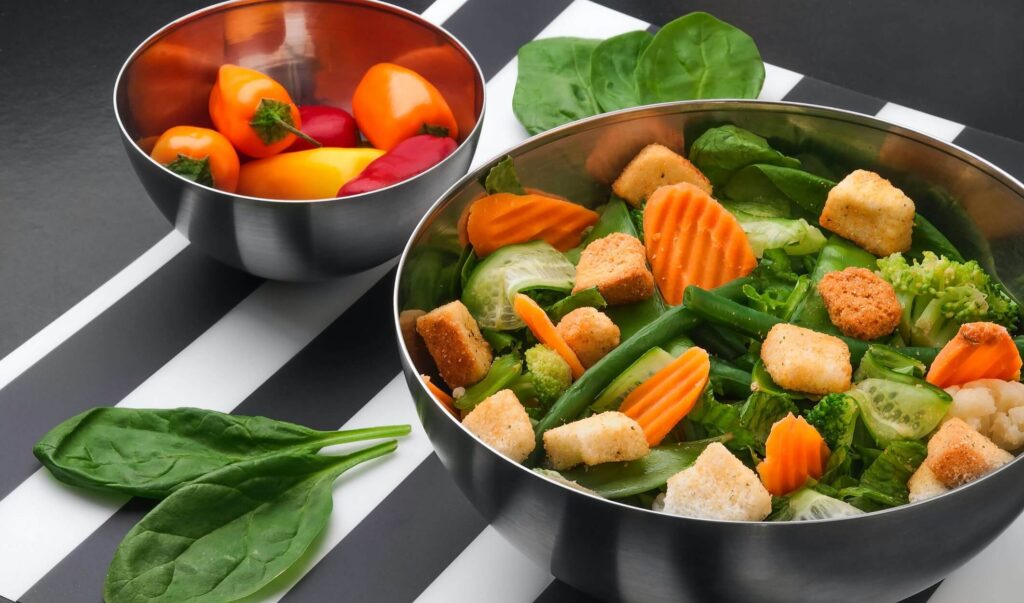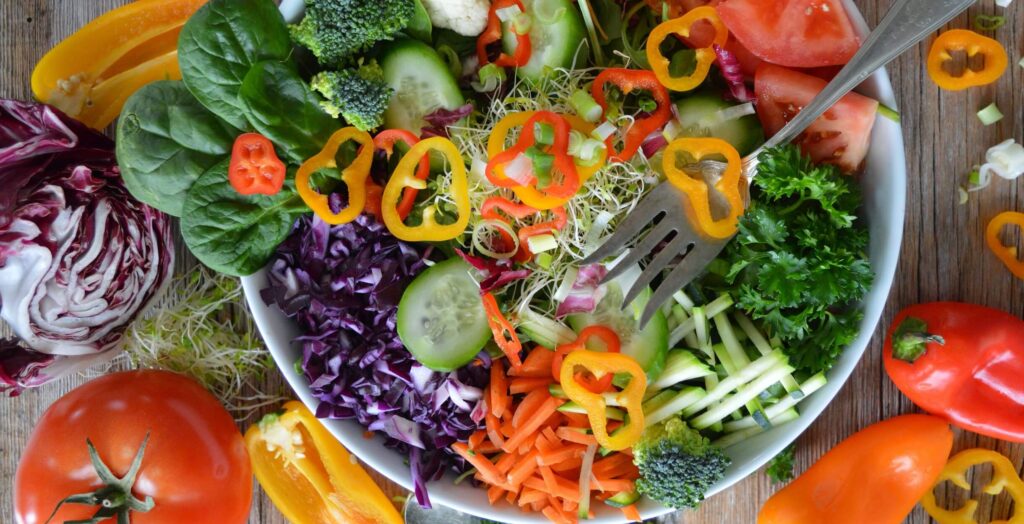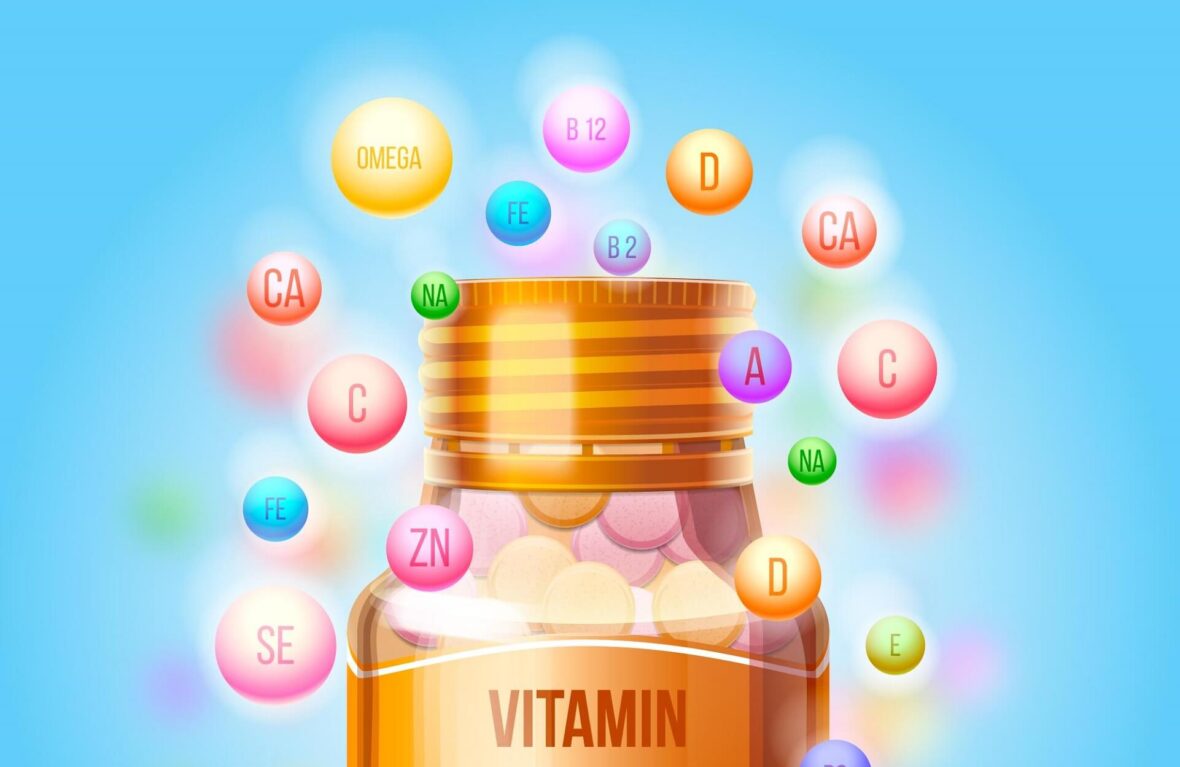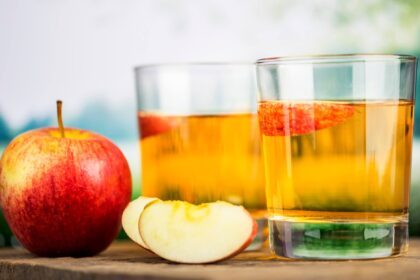Vitamins play a vital role in the functioning of your body and are essential for maintaining and reviving your skin. A lack of vitamins can have a negative impact on the appearance of your skin. A healthy diet and vitamin supplements can help you get adequate amounts of vitamins, which can improve your skin’s health. Some vitamins are especially important for skin, and taking multivitamins can help you achieve glowing skin. Multivitamins are essential for your overall health and skin.
This article will review types of multivitamins, how multivitamins important for your skin, and other related information.
Why multivitamin are important for your skin?
Taking a multivitamin supplement for your skin can help you in many ways. For example,
- May slow down the aging process and prevent the appearance of wrinkles.
- May also help to keep your skin hydrated and prevent excessive dryness, and
- May even help to control redness.
- If you have rough skin, it can also help to remove dark spots from your skin by taking the right amount of vitamins in a regular manner.

Top multivitamins and their health benefits:
Some vitamins might play a key role in skin health, and these are most effective when a person applies them directly to the skin. Following a healthful, and balanced diet of multivitamin may improve skin health by boosting overall health.
Vitamin-A:
Vitamin A is a key ingredient in anti-aging skin care, found in foods and supplements. It helps to restore collagen and smooth the skin, giving it a firm, youthful look. It also has antioxidant properties that help keep skin hydrated and fight skin issues like acne. Studies have shown that it has ingredients that can help reduce the appearance of wrinkles and improve the rate of skin repair and healing. That’s why the FDA approved Vitamin A as the first vitamin for anti-aging and rejuvenation. It’s one of the top multivitamins for skin.
Benefits of Vitamin-A:
- Enables cell growth and cell renewal for both the upper and the lower layers of your skin.
- Boosts collagen production to keep smoothens the skin, diminishing fine lines and wrinkles, and help to delay the sign of aging.
- Preventing sun damage by interfering the process of collagen breakdown and protect your skin.
- Help to prevent urinary stones.
- Boost immune system.
- Help to increase vision.
- Support your bone to stronger.
- Stimulate the muscle growth.
- It has antioxidant properties that help to prevent cancer.
- Increases memory and mood.
If you want to get the most out of your skin, taking a multi-vitamin supplement can be a great way to do it. It can help slow down the signs of aging, reduce the risk of wrinkles, keep skin hydrated, and even reduce redness. Plus, if you have rougher skin, taking the correct amount of vitamins can help get rid of dark spots.
B-complex vitamins:
Vitamin-B are the water-soluble vitamin, and usually available as supplements. Vitamin-B complex refers a group of them. Generally, these are eight different types: thiamine (B1), riboflavin (B2), niacin (B3), pantothenic acid (B5), B6, biotin (B7), folate (B9), and cobalamin (B12). Some B-complex vitamins may develop skin health.
These could help the body produce healthy new skin cells, and are most effective when people apply them directly to the skin. Moreover, Vitamin-B complex helps in hydrating and nourishing your skin.
Vitamin B-3 (Niacinamide):
Vitamin B3 is one of the most widely used B vitamins in skin care, and may help to reduce signs of skin aging, such as dryness and other related conditions, as well as age spots and other discoloration. Additionally, some women have reported improved skin and hair results when taking prenatal vitamins containing folic acid, which may also help to improve symptoms of skin aging.
Vitamin-B3 is known for its hydrating properties and its ability to improve the appearance of skin tone and texture, as well as reducing the appearance of pores and dark spots. It can be found in a variety of food sources, such as dairy, mushrooms, and cereals, as well as turkey, chicken, and peas.
Vitamin-B5 or Pantothenic Acid:
Vitamin B5 is a really important B vitamin that’s used a lot in skin care. It’s great for keeping your skin soft and supple, as well as providing hydration and reducing moisture loss. It also has anti-inflammatory properties, making it great for people with irritated skin. Plus, it helps in the formation of fibroblasts in the middle layer, where wrinkles are located. It also helps with elastin, glycans, and collagen synthesis, and acts as a moisture absorber.
It can help with acne, skin aging, skin tone, and even age spots and pigmentation. It’s a great vitamin for dry ageing skin, and can be found in foods like broccoli, sweet potato, avocado, mushrooms, and turkey.
Vitamin-B12 (Cobalamin):
Vitamin-B12 also helpful in skincare. It has excellent anti-ageing properties, which helps to impart glow and luster to dry and matured skin. Moreover, it may also help to decrease dark spots and give a smooth texture to your skin. Since this makes your skin look younger and more glowing, it is best multivitamin tablets for skin.
Food Sources are meat, eggs, fish, milk, fortified cereals, and cheese.

Benefits of B-complex vitamins for skin:
- : An important minerals for your skin healthy, like zinc help to protect from acne. Its anti-oxidant properties also benefits against ageing of both skins and muscles, and also helps in remedial skin after an injury or accident. Zinc sources includes cereals, hazelnuts, cashews, olives, peas, lean meat and more.
- : It has a strong antioxidant properties, which helps to maintain the elasticity and flexibility of the skin. Moreover, it also defends your skin from the harmful UV rays of the Sun. Selenium may be effective in preventing skin cancer in many cases. Food sources are fish, Brazil nuts and chicken.
- : It helps to hydrates the skin, and restoring its moisture level as per the necessity. Sources are iodized salts, eggs, fishes, seaweeds and dairy products.
- : It helps to keep the skin and hair healthy, and also helps make red blood cells and carries nutrients and oxygen to the skin, scalp and hair follicles. Sources are fish, meat, whole grains, almond, seafood and edible leaves. For vegan people to consider taking multivitamin tablets for skin.
Vitamin-C:
Vitamin-C is an essential nutrient for maintaining health, as its antioxidant properties prevent cell damage and fight disease. It is also necessary for collagen synthesis and connective tissue growth, as well as for the prevention of ageing and repair of damaged skin. Multivitamins containing Vitamin-C are a great way to increase the effectiveness of sunscreens, as they are water-soluble and present in large amounts in healthy individuals.
Vitamin-C has the potential to improve the condition of mutilated cells, making it an ideal vitamin for dry ageing skin.
Benefits of Vitamin-C:
Vitamin C has a range of beneficial effects on the body, including:
Furthermore, it can be used to protect the skin from sun exposure, roughness, and redness, and can speed up the healing process of wounds.
Vitamin-C stimulates the production of collagen, which helps to improve the texture and quality of the skin and makes it firm and elastic. It also helps to reduce the appearance of inflammation, such as rashes, redness, and irritation. Foods high in Vitamin-C include citrus fruits, tomatoes, green peppers, green vegetables, and other fruits like kiwis, and strawberries.

Vitamin-D:
Vitamin D is a key ingredient in keeping your skin looking and feeling great. It’s produced naturally by your skin and helps your skin repair, renew, and regenerate cells. It also boosts immunity and protects your skin from damage caused by free radicals. It’s great for dry ageing, but you’ll need to be out in the sun for at least 10 minutes a day without sunscreen. You can also get enough of it from eating foods with vitamin-D content.
Vitamin D changes cholesterol levels and helps your skin make healthy cells. If you don’t get enough of it, it can make your bones weak and cause skin problems like cancer, diabetes, and chronic inflammation.
Benefits of Vitamin-D:
- Support to boost immune system of skin.
- Locks in the moisture and control dehydration of skin.
- Control oil production through sebaceous glands present in the skin.
- It has antimicrobial effects on the skin.
- Develop the skin barrier function and protect from germs and injurious chemicals.
Vitamin-E:
Vitamin E is an essential nutrient for healthy skin, as it can be absorbed through the skin’s pores and forms an oily substance known as sebum. It has a range of anti-inflammatory, antioxidant, and anti-aging properties, and may help to slow down the effects of free radicals on the skin. Additionally, it has been found to be effective in wound healing when used in combination with vitamin-C and zinc, and may also be beneficial in treating acne, pressure sores, and other skin conditions.
It also helps to protect the skin from sun damage by absorbing the harmful UV rays, and can reduce the appearance of wrinkles, dark spots, and other dark spots. As dietary sources of Vitamin E become more abundant, it is becoming increasingly common to consume multivitamins and Vitamin-E supplements.
Vitamin-E benefits:
- Retain skin moisturize, and prevent dryness and irritation.
- Support skin to reduce dark spot and wrinkles.
- Exhibit your skin appear smooth and refresh.
- Make skin barrier and protect from the sun’s harmful rays, like UV rays.
Vitamin-K:
Vitamin-K is known for its anti-ageing and anti-inflammatory properties, so it may help to prevent the appearance of bruising, puffiness, stretch marks and dark circles under your eyes. It also helps to heal injuries and promote collagen synthesis, which can help to improve the appearance of wrinkles and make your skin look younger, brighter and smoother. Vitamin-K also supports the blood clotting system and bone health.
Food sources of Vitamin-K are, green beans, lettuce, cabbage, spinach, kale.
What is Zincovit tablet, and how it helps to your health?
Zincovit is a multivitamin tablet that typically contains zinc along with other essential vitamins and minerals. It may support the immune system, aid in wound healing, and promote overall cell growth and repair. However, its specific benefits can vary depending on individual nutritional needs and health conditions, so it’s advisable to consult a healthcare professional before incorporating Zincovit or any other multivitamin into your regimen.
What are deficiency and effects of multivitamin on skin?
Some of the problems caused due to lack of vitamins are listed below:
- Psoriasis: Key symptoms are rashes on the skin, or occasionally even in the nails or joints.
- Flaking dermatitis: Skin observed oval red patches. This is due to inadequate blood circulation.
- Yellow skin and vitiligo: Pigmentation disorder which reasons white patches on one’s skin.
- Eczema: Rashes on skin mostly in arms and knees, and further lead to swelling of the tongue, itchiness, redness sores and so on.
- Scurvy: Symptoms like red dots on your skin, gum bleeding and pain in muscles and joints.
- Skin ulcers: Symptoms contain rashes, itchy skin, flaking skin on the lips, and so on.
If you want to keep your skin looking its best, it’s important to make sure you’re getting the right amount of vitamins and minerals. Eating too much of Vitamin-E in supplements can lead to health issues like prostate cancer and heart disease, so make sure you’re managing your vitamin intake to protect your skin.
What are benefits of multivitamin for skin as you age?
As you age, it is essential to prioritize your skin. Skin is the largest organ in the body and taking multivitamins may help to slow the progression of ageing. As skin is a reflection of one’s health, it is important to maintain a balanced diet that contains all essential nutrients. Additionally, engaging in regular exercise can help to bring a natural glow to the skin. To ensure adequate Vitamin-D, it is recommended to avoid prolonged exposure to the sun for 10-15 minutes each morning.
Following the advice of a health care professional about the multivitamins benefits for skin can help to achieve desirable skin for a younger appearance.
Can consumption vitamins help your skin?
If you want to get glowing, healthy skin, you need to make sure you’re getting the right amount of vitamins in your diet. Taking vitamins orally won’t make a big difference in your skin, so it’s best to get them from a doctor or healthcare professional. Eating healthy foods like carrots, sweet potatoes, spinach, eggs and fish can help you get more of the vitamins you need.
Additionally, skin-care products that have been enriched with vitamins can help protect your skin from free-radical damage and reduce fine lines and wrinkles. But it’s important to know the right vitamins to get the most out of them.

Conclusion:
If you’re looking to improve your skin health, it’s important to make sure you’re getting the right amount of vitamins. Too much or too little can cause health issues, so it’s best to choose vitamins based on your skin needs. Not all vitamins are the same for every skin condition, and the wrong mix can even make things worse. Eating a balanced, wholesome diet is the best way to keep your skin healthy, and vitamins are a key part of that.
They can make a big difference in your skin’s appearance and feel, while also protecting it from skin infections and cancer. To make sure you get the right vitamins for your skin, it’s a good idea to talk to a dermatologist.
FAQ
What are the benefits of taking multivitamins daily?
Multivitamins can be beneficial in terms of promoting overall health and wellbeing, as they can help to replenish essential nutrients that may not be available from the diet. However, the potential benefits of taking these vitamins may differ depending on the individual’s nutritional requirements and health conditions.
Do multivitamins really work? What are the proven benefits?
Multivitamins can help fill nutritional gaps in certain populations, but their effectiveness depends on your individual health and dietary needs. Therefore, it is important to talk to your doctor about whether multivitamins may be right for you, as their effectiveness may not be proven in all cases.
Which vitamins are essential in a multivitamin?
A regular multivitamin usually has all the essential vitamins you need to stay healthy, like vitamins A, C, D, and E, plus the B vitamins you need to make sure you’re feeling your best. But the type of multivitamin you get depends on what brand it’s from and what it’s made of.
Can multivitamins help with energy and fatigue?
Multivitamins can increase energy levels in some people, but this can depend on a variety of factors, such as nutritional deficiencies or medical conditions. Talk to your doctor about the root causes of fatigue to determine what the best course of action is.
Are there any risks or side effects associated with multivitamin use?
Multivitamins can be safe to take as directed, but overuse can cause digestive problems, allergic reactions and the potential to overdose on some vitamins and minerals, so it’s important to follow the recommended dosage and talk to your doctor before beginning any new supplement routine.
Reference Used:
https://www.verywellhealth.com/vitamins-for-the-skin-5084899
https://www.medicalnewstoday.com/articles/324943
https://www.webmd.com/beauty/nutrients-for-healthy-skin
http://www.healthkart.com/connect/multivitamin-benefits-for-skin-as-you-age/





